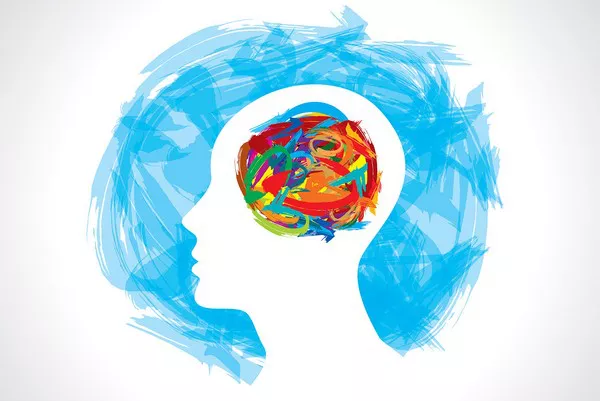Bipolar disorder, a complex mental health condition, is characterized by extreme mood swings that range from periods of intense mania to episodes of debilitating depression. Mood stabilizers have emerged as a crucial component in the treatment of bipolar depression, helping individuals manage their symptoms and achieve stability in their emotional states. In this article, we will delve into the world of mood stabilizers, exploring what they are, how they work, and their significance in managing bipolar depression.
Understanding Bipolar Depression
1. The Spectrum of Bipolar Disorder
Bipolar disorder exists on a spectrum, with individuals experiencing varying degrees of mood swings. These mood swings can disrupt daily life, relationships, and overall functioning.
2. Impact of Bipolar Depression
Bipolar depression is marked by periods of profound sadness, low energy, and a sense of hopelessness. These depressive episodes contrast with manic or hypomanic phases characterized by heightened energy and euphoria.
What Are Mood Stabilizers?
1. Definition and Purpose
Mood stabilizers are a class of medications prescribed to individuals with bipolar disorder to regulate mood fluctuations. They help prevent the extreme shifts between mania and depression, fostering emotional balance.
2. Types of Mood Stabilizers
Common mood stabilizers include lithium, anticonvulsants (such as valproate and lamotrigine), and certain atypical antipsychotic medications.
How Do Mood Stabilizers Work?
1. Stabilizing Neurotransmitters
Mood stabilizers act on neurotransmitters, the chemical messengers in the brain that regulate mood and emotions. They help maintain a stable balance of these neurotransmitters to prevent mood swings.
2. Impact on Ion Channels
Some mood stabilizers, particularly anticonvulsants, affect ion channels in nerve cells. By modulating the flow of ions, they regulate the firing of neurons and influence mood regulation.
3. Neuroprotective Effects
Certain mood stabilizers exhibit neuroprotective effects, which may help safeguard brain cells from damage caused by oxidative stress and other factors associated with bipolar disorder.
Benefits of Mood Stabilizers for Bipolar Depression
1. Reducing Manic Episodes
Mood stabilizers are effective in reducing the frequency and intensity of manic or hypomanic episodes, which can disrupt daily functioning and impair decision-making.
2. Managing Depressive Episodes
Mood stabilizers also play a crucial role in managing depressive episodes, alleviating symptoms of sadness, fatigue, and hopelessness.
Factors Influencing Choice of Mood Stabilizer
1. Individualized Treatment
The choice of a specific mood stabilizer depends on factors such as the individual’s medical history, response to medications, potential side effects, and overall treatment goals.
2. Coexisting Conditions
The presence of coexisting conditions, such as anxiety or substance use disorders, may influence the selection of a mood stabilizer to address multiple symptoms.
Potential Side Effects and Considerations
1. Monitoring and Adjustment
Mood stabilizers can have side effects, ranging from mild to severe. Regular monitoring by a healthcare provider is essential to adjust dosages and manage any adverse effects.
2. Pregnancy Considerations
Pregnant individuals or those planning to conceive should discuss mood stabilizer options with their healthcare provider, as some medications may pose risks during pregnancy.
Holistic Approach to Bipolar Depression
1. Comprehensive Treatment
Mood stabilizers are often part of a comprehensive treatment plan that includes psychotherapy, lifestyle adjustments, and support networks to enhance overall well-being.
2. Importance of Therapy
Psychotherapy, including cognitive-behavioral therapy (CBT) and dialectical behavior therapy (DBT), can provide valuable coping strategies and tools for managing bipolar depression.
Expert Insights and Future Research
1. Expert Opinions
Dr. Sarah Smith, a renowned psychiatrist specializing in mood disorders, emphasizes that “Mood stabilizers are a cornerstone of bipolar disorder treatment. Their role in stabilizing mood fluctuations is invaluable, but they should be used in conjunction with other therapeutic approaches.”
2. Ongoing Research
Ongoing research in the field of psychiatry aims to better understand the mechanisms of mood stabilizers and develop new treatment modalities to enhance their effectiveness.
Conclusion
In conclusion, mood stabilizers play a pivotal role in the management of bipolar depression, providing individuals with the means to achieve emotional stability and lead fulfilling lives. By regulating neurotransmitters, influencing ion channels, and exerting neuroprotective effects, these medications help prevent extreme mood swings and alleviate the symptoms of both manic and depressive episodes. However, it’s crucial to approach treatment holistically, integrating psychotherapy, lifestyle modifications, and ongoing medical supervision to optimize outcomes. As ongoing research furthers our understanding of mood stabilizers and their mechanisms, individuals living with bipolar disorder can look forward to enhanced treatment options and improved quality of life.


